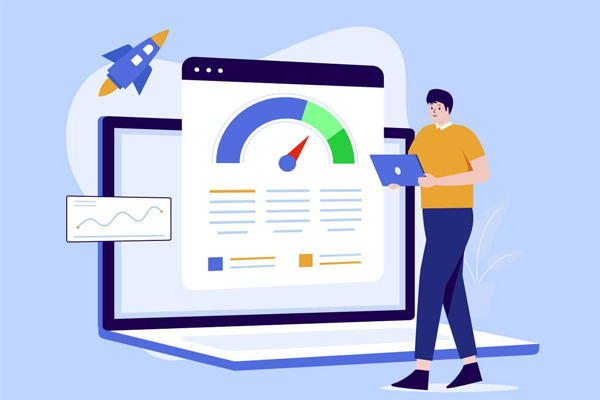How Web Technology Drives the Global Economy Forward
The world as we know it thrives on connectivity, innovation, and rapid technological advancements. At the center of this transformation lies web technology, an intricate web of tools, platforms, and solutions that has fundamentally reshaped the way businesses, individuals, and governments operate. But what is web technology, and how does it serve as the backbone of the global economy? This article delves deep into the subject, uncovering the vital role it plays in driving economic growth, enhancing productivity, and fostering global collaboration.
1. Understanding Web Technology and Its Components
Web technology encompasses a range of tools and systems that allow communication and interaction over the internet. This includes web browsers, web servers, programming languages, frameworks, APIs, and databases. Together, these components form the digital infrastructure that powers websites, apps, and online platforms, making them indispensable in today’s digital-first economy.
For example:
- Web browsers like Chrome, Safari, and Firefox facilitate access to online information.
- Programming languages such as JavaScript and Python drive the functionality of web applications.
- APIs (Application Programming Interfaces) enable seamless integration between systems and services.
2. Connecting Markets on a Global Scale
One of the most transformative impacts of web technology is its ability to connect markets worldwide. Businesses no longer need to operate within geographical boundaries; instead, they can reach customers and partners across continents.
E-Commerce as a Driving Force
Platforms like Amazon, Alibaba, and Shopify rely on web technology to connect buyers and sellers globally. These platforms have opened doors for small and medium-sized enterprises (SMEs) to compete on a global stage, significantly contributing to international trade.
3. Driving Innovation and Startups
Web technology has been the catalyst for startups and innovative business models. From ride-sharing apps like Uber to food delivery services like DoorDash, web-based solutions have revolutionized traditional industries.
The Role of Cloud Computing
Cloud computing, an essential aspect of web technology, enables startups to scale without investing heavily in infrastructure. Companies can launch products faster, collaborate efficiently, and adapt to market demands, fostering economic dynamism.
4. Boosting Productivity in Enterprises
Web technology plays a pivotal role in streamlining business operations, increasing efficiency, and reducing costs. Tools like Slack, Microsoft Teams, and Asana allow teams to collaborate in real-time, breaking down silos and improving workflows.
Automation and AI Integration
Web technology also supports automation tools and AI solutions, allowing businesses to automate routine tasks, enhance decision-making, and allocate resources more effectively.
5. Enabling Remote Work and Virtual Offices
The rise of remote work during the COVID-19 pandemic was made possible by advancements in web technology. Video conferencing tools like Zoom and collaboration platforms such as Google Workspace allowed businesses to continue operations without significant disruption.
Economic Impact
Remote work has redefined traditional employment, enabling companies to tap into global talent pools and reducing overhead costs associated with physical office spaces.
6. Empowering Digital Education and Skill Development
The shift towards online education platforms like Coursera, Udemy, and Khan Academy demonstrates how web technology has democratized access to education. Millions of learners worldwide can now access high-quality courses, enhancing their skills and employability.
A Skilled Workforce
By bridging skill gaps, web technology plays an indirect but crucial role in economic growth, ensuring a more competitive and adaptable workforce.
7. Enhancing Consumer Experience
Consumers today demand personalized, seamless experiences, and web technology has made it possible for businesses to meet these expectations.
Data-Driven Insights
Through tools like Google Analytics and customer relationship management (CRM) systems, businesses can analyze consumer behavior, tailor their offerings, and build loyalty. This not only drives revenue but also boosts overall economic activity.
8. Facilitating Financial Inclusion
Web technology has paved the way for fintech solutions that promote financial inclusion. Digital payment platforms like PayPal, Stripe, and mobile money services in developing countries have made financial services accessible to previously underserved populations.
Impact on Developing Economies
By enabling secure transactions, web technology empowers individuals and small businesses, fostering entrepreneurship and reducing poverty levels in emerging markets.
9. Accelerating Research and Development
Research institutions and businesses rely heavily on web technology for collaborative research and innovation. Open-source platforms, shared databases, and real-time collaboration tools speed up the development of new technologies, medicines, and solutions that drive economic growth.
10. Shaping the Future with Emerging Trends
As web technology evolves, new trends like Web 3.0, blockchain, and the Internet of Things (IoT) promise to redefine the global economic landscape.
Web 3.0 and Decentralization
Web 3.0 envisions a decentralized internet, empowering users with greater control over their data and digital identities. This could revolutionize industries like finance, healthcare, and supply chain management.
IoT and Smart Economies
IoT devices enable real-time data collection and analysis, driving efficiencies in sectors like agriculture, logistics, and urban planning.
Conclusion
Web technology is not just a tool; it is the engine that drives the global economy. By connecting markets, fostering innovation, enhancing productivity, and empowering individuals, it has become an indispensable force in shaping the world. As advancements in web technology continue to unfold, its potential to drive economic growth, bridge divides, and create opportunities remains boundless. To thrive in this interconnected era, businesses and individuals must embrace and harness the power of web technology. The future of the global economy is digital, and web technology is leading the charge













